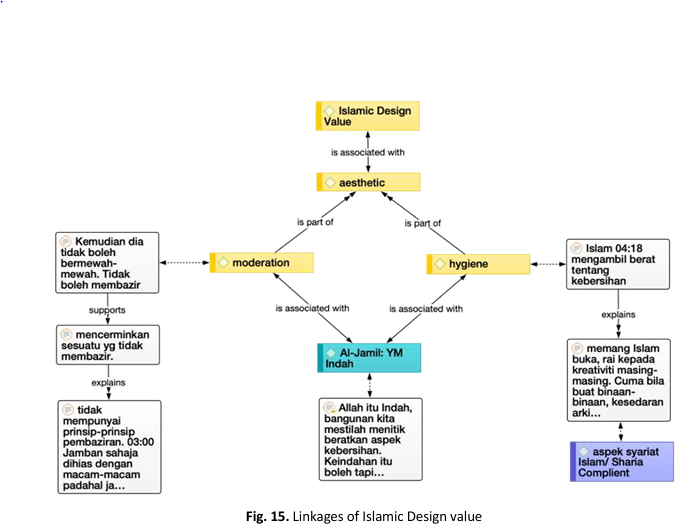Islamic Design Value: The Criteria of Design Pleased by Allah Based on Islamic Perspectives
DOI:
https://doi.org/10.37934/ard.135.1.134153Keywords:
Allah’s pleasure, ATLAS.ti, design criteria, Islamic design, Islamic value, qualitative, thematic analysisAbstract
The primary purpose of good design is to fulfil consumers’ needs and wants. This is because the global market has always been increasingly competitive than ever. Nevertheless, Muslims should always prioritise Allah SWT in every aspect of their lives, including in design. Unfortunately, this topic is rarely discussed and explored. Hence, this paper analyses the criteria of design based on Islamic perspectives, one that pleases Allah SWT, the Almighty God. Face-to-face interviews were conducted among Islamic scholars to explore their views on design criteria that align with Islamic principles. The findings were analysed using ATLAS.ti software, a qualitative data analysis tool, to systematically organize and interpret the qualitative data obtained from the interviews. The study highlights the importance of considering sustainability, ergonomics, aesthetics, Sharia compliance and fulfilment of human needs in design practices guided by Islamic principles. The findings serve as a guideline for designers, particularly Muslim designers, to create designs that please Allah SWT and contribute to a more inclusive and culturally sensitive design landscape. By integrating ATLAS.ti software into the analysis process, this study ensures rigor and transparency in the qualitative data analysis, thereby enhancing the credibility and reliability of the research findings. Overall, the paper contributes to the discourse on design theory and practice within Islamic perspectives.
Downloads























